This article originally appeared in the January 1987 issue of SPIN.
Walk into the office of one of the hot managers in pop music at the moment, and you are struck: Joe Jackson's outer office is empty, except for his secretary and a young white couple necking in the corner. The walls are filled with publicity photos of his nine children, including a huge oil painting of Janet Jackson. Hot? Burning, baby…Jackson listens poker-faced to my apologies for being late and ushers me into his private office. "You have 15 minutes," he says.
On his office walls hang a few items of Michael Jackson memorabilia—the gold record for Thriller—next to several paintings of lions, Joe Jackson's astrological sign. The look is music business power, but the sound is calm, unusual calm in light of the excitement and activity surrounding Jackson. Janet's album, Control, has been at the top of the charts all year and is about to burst upward again with the just-released title track single. And in a few days she'll be in the Olympic Auditorium in downtown L.A. shooting the album's fourth video before a screaming throng of mostly black and Hispanic teenagers.
A secretary stirs outside, the phones hardly ring. Janet is in Japan doing a commercial and Michael is in the studio with Quincy Jones finishing the long-awaited sequel to Thriller. But you cannot just start in with Joe Jackson, because he doesn't make you comfortable. He is a stern, if not altogether intimidating veteran of the black music circuit, where he broke his sons as the Jackson Five, and has been known to pursue a deal with the instincts of a shark and the wiles of a con man.
But sometimes he's landed in deep water. The complexity of managing a group as popular as the Jackson Five was overwhelming at times, and Michael's career became absolutely impossible. When his management contract with Michael ran out in 1983, Michael did not renew it. So for the past year, Jackson has devoted himself to the Joe Jackson Dancers, a group of hot young international lovelies, and Patti Brooks, an older Casablanca Records disco star. He has also lent his name to a line of brandy and is marketing a soft drink called Jo Cola. But this kind of hustling seems strange for Jackson. His main client is his daughter, and Janet Jackson's career has reached the top.
"We're the dog with the bone that all the other dogs are trying to get," barks Jackson. "And the pressure is always on you to hold onto what you've got."
What he's got is a showstopper. Just a few years ago, Janet's act was cute and bubblegum. Kind of tinkly. Now, it's a well-rehearsed and choreographed potboiler, with Janet strutting and shaking her butt in the videos, while singing songs that are furiously sexual.
"She's of age," says Jackson. "But then, it's just an image. Janet isn't that way at home. She may think of herself as a little rebel, but she's still my daughter. She's always been just Janet Jackson to me."
[caption id="attachment_id_334223"] 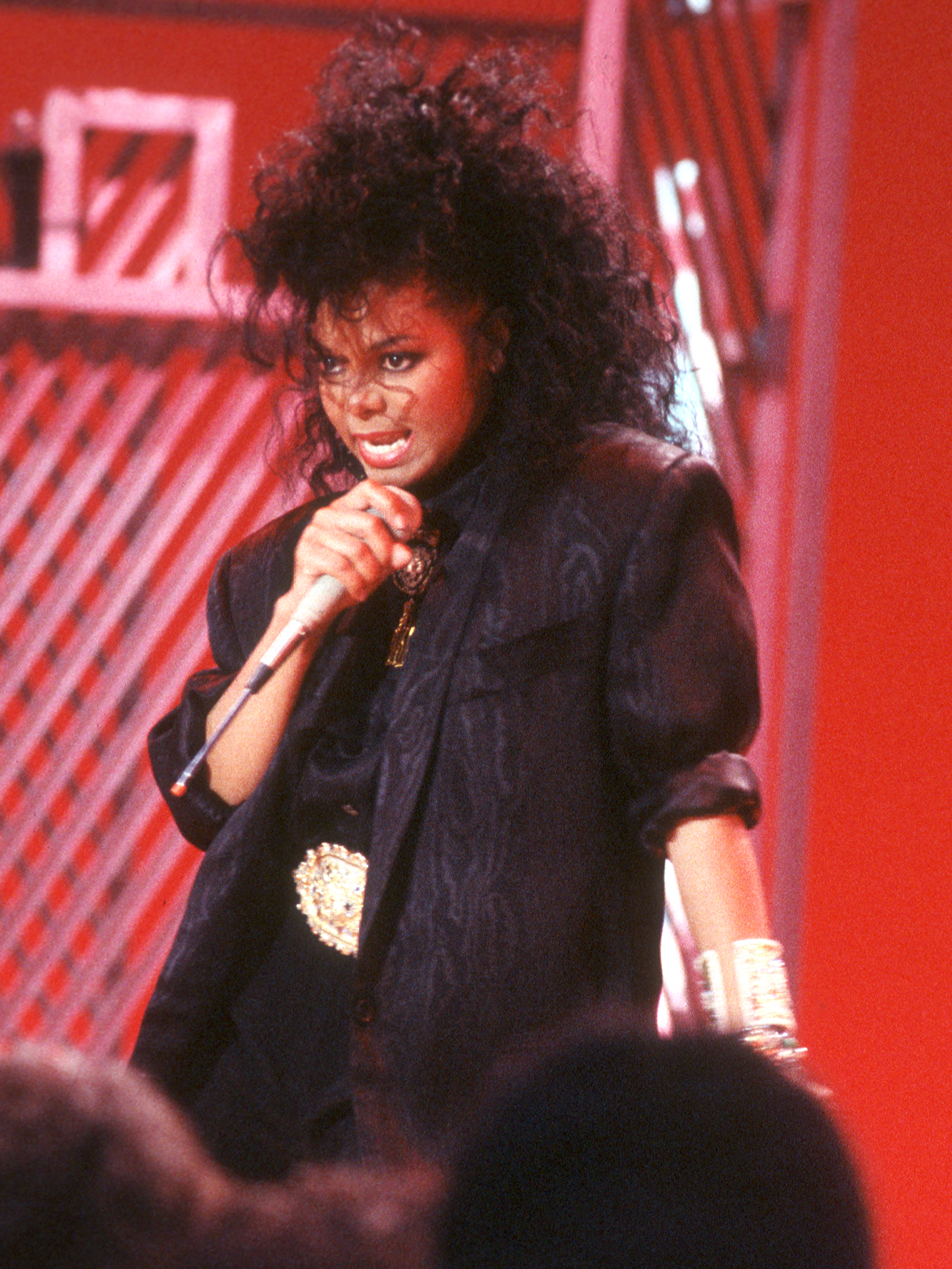 Michael Ochs Archives/Getty Images[/caption]
Michael Ochs Archives/Getty Images[/caption]
In 1977 Norman Lear cast Janet as a wide-eyed, angelic-looking battered child on the sitcom Good Times after watching her on several Jackson Family television specials. She was a regular until two years later, when she moved on to Diff'rent Strokes, where she played the sassy-talking Charlene. There were faster moves to make. By the time she was 16, her father was shopping for a recording deal at A&M, although she had doubts about her readiness to enter the recording business. But Joe Jackson kept pushing. "I feel it," he told her. "You're ready. I can tell."
Jackson tries to take hold of my notes to read what I intend to ask him, but I tactfully manage to short-circuit his attempt. He is a proud, plainspoken man, who doesn't hesitate to claim his role in Janet's success. The last year has been an extended battle for control of Janet: the wily, tough, shrewd Joe Jackson is aligned against the smooth, young-market-oriented A&M Records executive John McClain, who is given a great share of the credit for Janet's breakthrough. Each of these forces is out to depose the other.
At times during the making of Control, the struggle generated such bitterness that the two were barely speaking. According to McClain, Jackson didn't want Janet to record with the powerhouse writing/producing team of Jimmy Jam and Terry Lewis, never heard the album until it was completed, didn't like the finished product when he first heard it, and didn't think it would sell.
"I'm not the type to jump into the media, but people know I'm the backbone of the Jackson family," says Jackson. "As for Janet, I was putting her on stages in Vegas back when she was still a little girl."
Jackson doesn't look at me too often as he paces the floor. He is more intent on his own thoughts than my reactions.
"I've worked hard for my family," he asserts. "The problem comes, though, when others come in behind you and try to steal them away. Others tell them: 'We can do this for you, we can do that.' But the wheels had already been set in motion for Janet Jackson; anyone who jumps on now will be getting a free ride. And I don't intend to let that happen."
https://www.youtube.com/watch?v=LH8xbDGv7oY
By "anyone who jumps on now," Jackson may be referring to the 31-year-old McClain. More than a record company executive, McClain has been a close family friend of the Jacksons since 1968, when he attended the Walton Academy in Encino with several of the Jackson brothers.
("When I was two," Janet said, "John used to change my diapers. He's like a son to my parents. I can talk to him for four and five hours straight on the phone and never get bored. He's always been there for me.")
The mention of McClain's name wins a less than enthralled reaction from Joe Jackson.
"I take nothing away from John McClain," he says evenly. "But he works for a record company and he gets paid to do what he's done for Janet Jackson. He has no control over her. He's not in business to have control over her. And no, he is not like a son to me. John McClain has his own daddy."
Jackson continues to pace, pausing by the window every so often to gaze at the impressive view of Los Angeles below.
"I have no favorites, be it Michael, Janet, or whomever," he reflects. "You have children that are more talented than others, but they're all yours. Even the ones with no talent. Katherine and I tried to develop the talent of all our children. They were trained hard and taught well. As parents, we wanted them to get all they deserved, and deserved all they got." Janet's Control album, says Jackson, is successful because it reflects her background. "She came out of a black situation. Those are her roots. You can stay black and still sell millions of records."
And bottom-line, according to Jackson, is that the family "is making money. If Janet listens to me and works a little harder, she'll be as big as Michael."
It's starting to get dark. The lights of Los Angeles are glittering and Joe Jackson has been answering questions for close to an hour. "When you're in the public eye," he observes quietly, "your life is in the public domain. People read about you, they write about you. They draw their own conclusions. I would get more respect if the public knew the whole story, if they really looked at where the Jackson clan started and where it is today."
Jackson smiles and looks at me directly. "Others try to jump on the bandwagon," he says. "I am the bandwagon."
[caption id="attachment_id_334225"] 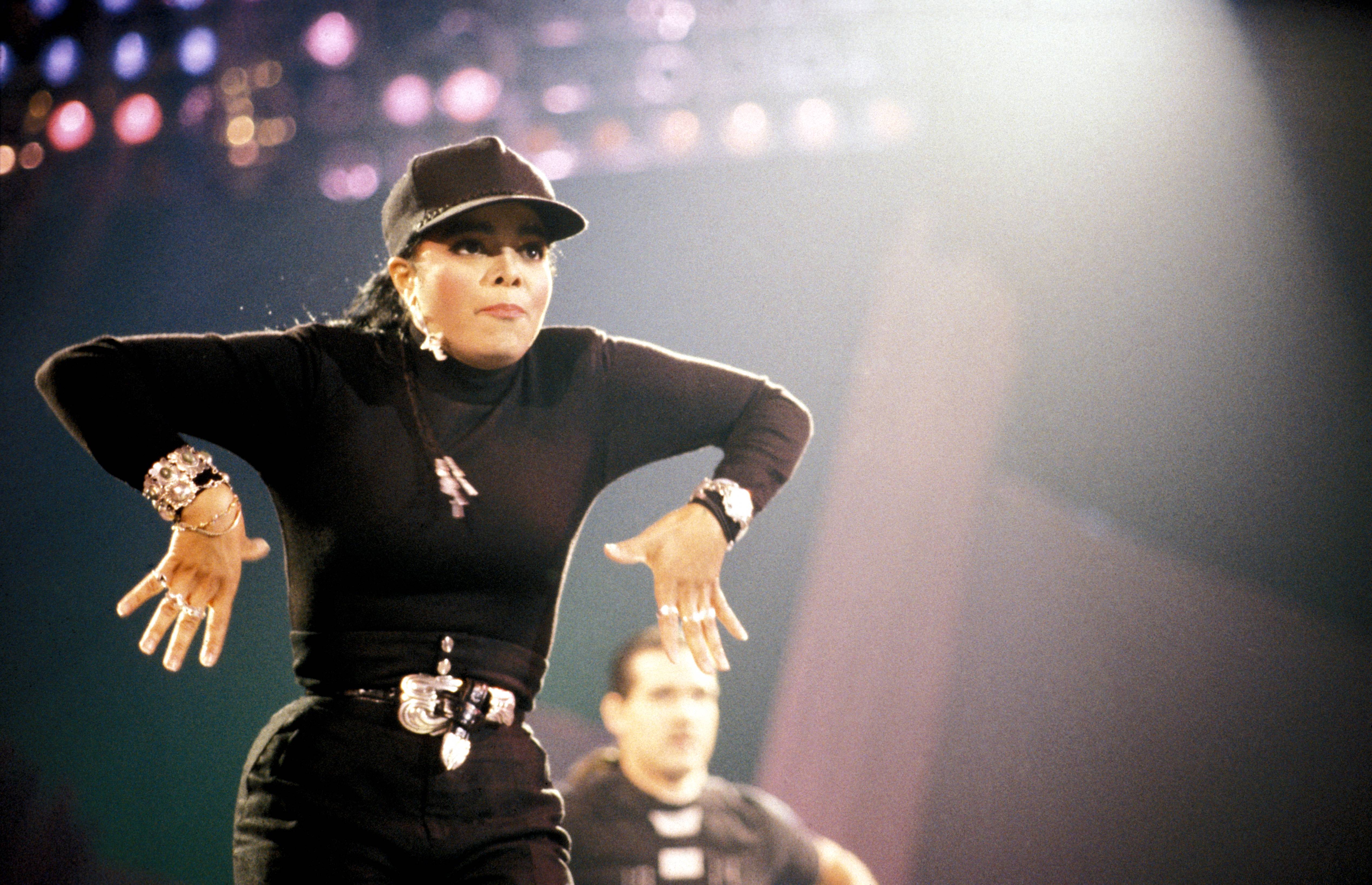 Michel Linssen/Redferns[/caption]
Michel Linssen/Redferns[/caption]
Janet drives up to the photo studio in her shiny black Mercedes-Benz 300 with her dog, Fluffy, and her production assistant, Jessica, and bounces in all bright and bubbly like a chubby-cheeked Michael.
"Janet drives really fast," says Jessica.
"Like a bat out of hell," says her publicist, who's been waiting at the studio for them to arrive.
"It's a murky, overcast day and we're in photographer Pete Tangen's studio, a spiffy setup located between downtown L.A. and Koreatown in the kind of shabby neighborhood that makes you want to check your car periodically. But Janet seems unperturbed. She's cool and very self-possessed.
And just barely turned 20. She's cuddly pretty, not the womanly beauty of the videos. ("I'd like be as beautiful as Rebbie and LaToya," she says. "They can walk out of the house wearing no makeup and look good. Me, I had a photographer tell me he wanted to shoot me with a 'natural' look. Just a little base, lipstick, and mascara. I looked at myself in the mirror and thought: 'Gawd, is that it?' I mean, I'm not the last of the litter, I'm not ugly. I'm not gorgeous. I'm on the borderline. I just made it over…barely.")
Janet's hair is tied up in ultrablack ringlets, and she is wearing red nail polish, ultrawhite socks, and sturdy lace-up shoes. Here, in the studio, she is trying to present a portrait of the private Janet Jackson, who worries about wearing contact lenses like Whoopi Goldberg and Grace Jones. ("I look at them and go: 'Whooooooooo…'")
Archie Bell and the Drells' "Tighten Up" and Booker T and the MG's "Green Onions" blast from the tape deck. If Janet's worried about anything, it doesn't show.
"Don't you know any of these songs?" Pete Tangen asks, firing off shots.
"You talkin' to me?" she asks. "Nah."
Janet gives off the kind of keep-your-distance signals that can chill any attempt at overfamiliarity. Tangen's assistants have laid out a nice spread of food: Chinese chicken salad, Kentucky Fried Chicken, the obligatory cheese and crackers, fruit, and Evian water. But while everyone else stuffs his face over the course of the three-hour shoot, Janet doesn't eat much. Just an apple, an occasional grape.
She's one cool girl, this Janet Jackson.
But, then, she can afford to be. When Janet was just a baby, still living in a close-knit, protected family environment, her five older brothers—Michael, Jermaine, Jackie, Marlon, and Tito—formed one of the premiere black pop groups in the country, the Jackson Five. Managed by their father, who was formerly a guitarist with a '50s soul group called the Falcons, the Jackson Five had the distinction of being able to come up with a hit record for Motown Records practically every three months: "I Want You Back," "ABC," "The Love You Save," "I'll Be There."
[caption id="attachment_id_334227"] 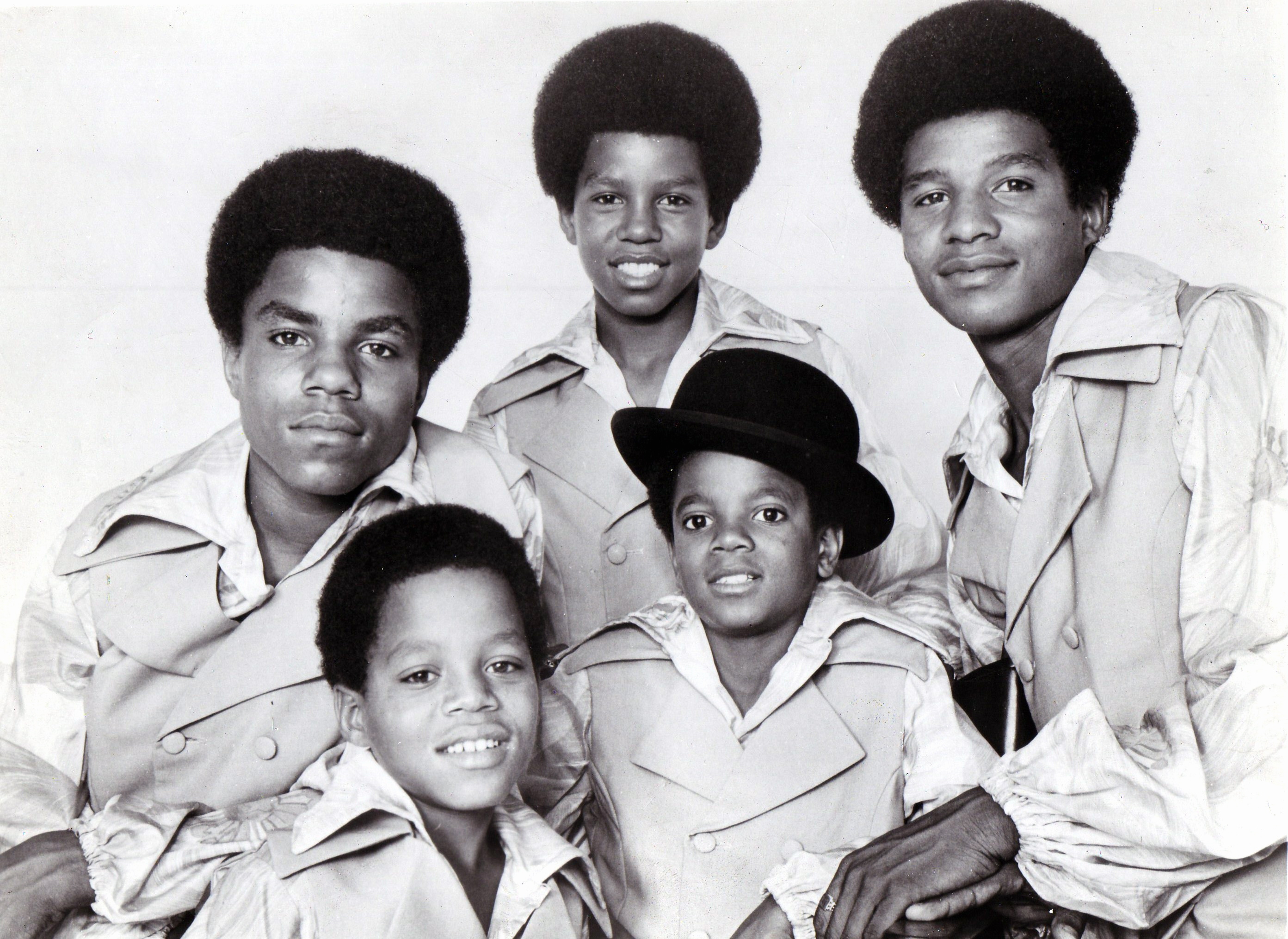 Gilles Petard/Redferns[/caption]
Gilles Petard/Redferns[/caption]
In March 1976, the group decided to leave Motown, citing a desire for more "creative control" as one of their reasons. It generated a slow-to-heal rift between Joe Jackson and Jermaine, who was married to Motown mogul Berry Gordy's daughter, Hazel. Jermaine elected to remain at the label.
"It's my blood that flows through his body," Joe Jackson said, "not Gordy's." Jackson does not manage his oldest child, Rebbie Jackson, who scored a Top 20 pop urban hit in 1984 with the single "Centipede," which was produced by Michael. He does, however, oversee the careers of the Jacksons (with brother Randy), Janet, and his other daughter, 30-year-old LaToya, who sang on the "We Are the World" sessions and had a minor black radio hit single a few years back with "Heart Don't Lie."
While all of his children have pursued stardom with varying degrees of luck, it is the hugely successful Michael and the on-the-rise Janet who have emerged as the true stars of the family. Michael, for all his soft-spoken, gentle demeanor, is said to be fiercely competitive, acutely business-minded. It's rumored that part of the reason his follow-up to Thriller has been delayed is so it won't have to share the charts with Janet's Control.
But the album shows no sign of expiring. Control was one of the ten best-selling albums of 1986. Three million people bought it. Ferociously hip and intensely autobiographical, its dance tracks made it one of the most exciting releases by a black artist since—dare I say it?—Michael's Thriller. And despite all the prostrations on the altar of crossover by many artists of color these days, Control's distinction is that it is so aggressively black. Funky, focused, and rhythmic, Control contained an extraordinary number of hit singles. It is clearly an expression of a woman defining her soul and declaring her freedom.
At its center is the title song "Control," which can be taken as Janet's comment on the crisis that has forced her to divide her loyalties between McClain and her father. "When I was 17…I did what my father said…but that was long ago."
Seated across from me in an office at Tangen's studio, Janet spells out its special significance. "When I listen to it, I hear someone who is very cocky, bold, straightforward, assertive."
[caption id="attachment_id_334229"] 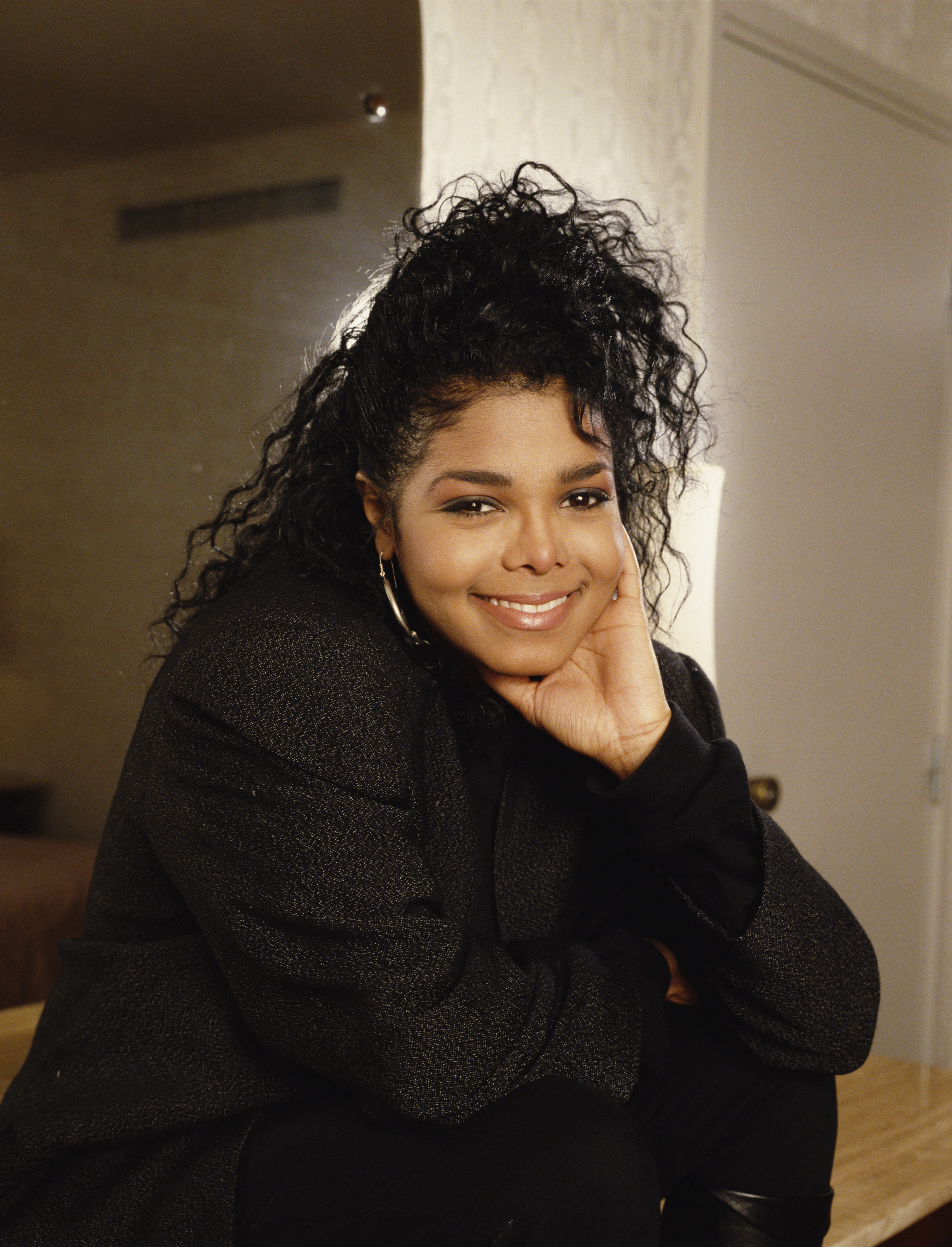 Tim Roney/Getty Images[/caption]
Tim Roney/Getty Images[/caption]
"A pimp?" John McClain asks incredulously. "I'm not trying to pimp Janet Jackson or steal her away from her father. I dig Janet Jackson." McClain says that he has, perhaps, gotten "too much credit" for the acclaim Janet is currently receiving, but he did match her with Jimmy Jam and terry Lewis. Control, he emphasizes, is the result of hard work put in "by the A-Team: myself, Janet, Jimmy, and Terry."
"I would have been scared if Joe Jackson had liked what we did, because I wasn't trying to get a 50-year-old audience. I'm trying to get these kids out here. And because I'm a lot younger than Joe Jackson, I have a clearer vibe on how to do that."
McClain is a smart and savvy young man who manages to convey confidence without seeming arrogant. He says he's enthusiastic about the reunion of the Time that will take place next year when the Morris Day-led group stars with Janet in a movie for which McClain has written the screenplay.
"I saw Prince's Under the Cherry Moon and thought it was too esoteric," he says diplomatically. "Our movie will be more down-to-earth…and ethnic." He calls the tour Janet and the Time will embark on next summer "historic: I expect it to be the concert of the year."
Janet's fans, he says, have only gotten a small taste of what she has to offer as a performing artist. "I've told her: 'Let Whitney [Houston] and Pattie [LaBelle] sing their lungs out. Just concentrate on being a female Michael Jackson and you'll give the people something that's even more exciting,' After all, Luther Vandross is a better singer, but Michael's a bigger star because of the way he dances, because of his visual concepts."
McClain says it took him a long time to get Janet to break down and admit that she wanted to be as big a star as her brother. "When I talk to Janet," he allows, "I'm her father, her brother, her shrink. She trusts me. She felt guilty about admitting that she did feel competitive. She was scared that she'd try and fail. Well, Michael may not want her to be as big, but it's no sin for her to want it."
https://youtu.be/EaleKN9GQ54
McClain was from a well-to-do family himself. He and Michael were close friends when they attended Walton Academy. "Tito and Jermaine never wanted to hang out with Michael, so I did," he says. Until recently, he notes, Joe Jackson had always made him feel like a member of the Jackson clan. While her father did get Janet her contract with A&M Records, McClain says, "Joe left Janet in my hands because he had a lot of other projects going. He gave me enough rope to hang myself."
Instead, McClain proceeded to make Janet one of his special projects. He got her to diet and exercise, sent her to a vocal coach, and teamed her with choreographer Paula Abdul. He even picked out her clothes at Maxfield in West Hollywood and sent her to his hair stylist for a new look.
Initially, Janet earned only a modest level of achievement at the label. Her 1982 debut album, which contained the mini-hit "Young Love," and her Giorgio Moroder-produced 1984 Dream Street album, both sold a respectable 200,000 units (Control, however, sold 250,000 copies in one week in July).
After McClain had been at A&M for only six months, he received a highly lucrative offer to join MCA Records' black music division. "But I stayed at A&M because of Janet. And I didn't stay to see her sell just 200,000 units." Friction with Joe Jackson developed as Control became a blockbuster. "When an album sells 200,000 units it's a 'me' project; when it sells 3 million, it becomes a 'we' project."
Lately, McClain has acquired a mystique in the music industry as the Svengali who exerts total authority over Janet Jackson, even to the point of having coerced her into getting her divorce. McClain explains it differently: "People look at Janet as being weak, but she's tough. Yes, I did pry into her business a bit. I didn't think the marriage was a good move for her. Even her brothers weren't crazy about it. But nobody slammed me for having too much influence over Janet until she stared selling a lot of records. She and I were close even back when she wasn't selling any."
McClain says his aim is to make her the "queen of the music industry. It's been a challenge just to bring her to this level; people told me I'd never be able to do it. But Janet has so much potential. She's got cards she hasn't even shown yet."
[caption id="attachment_id_334237"] 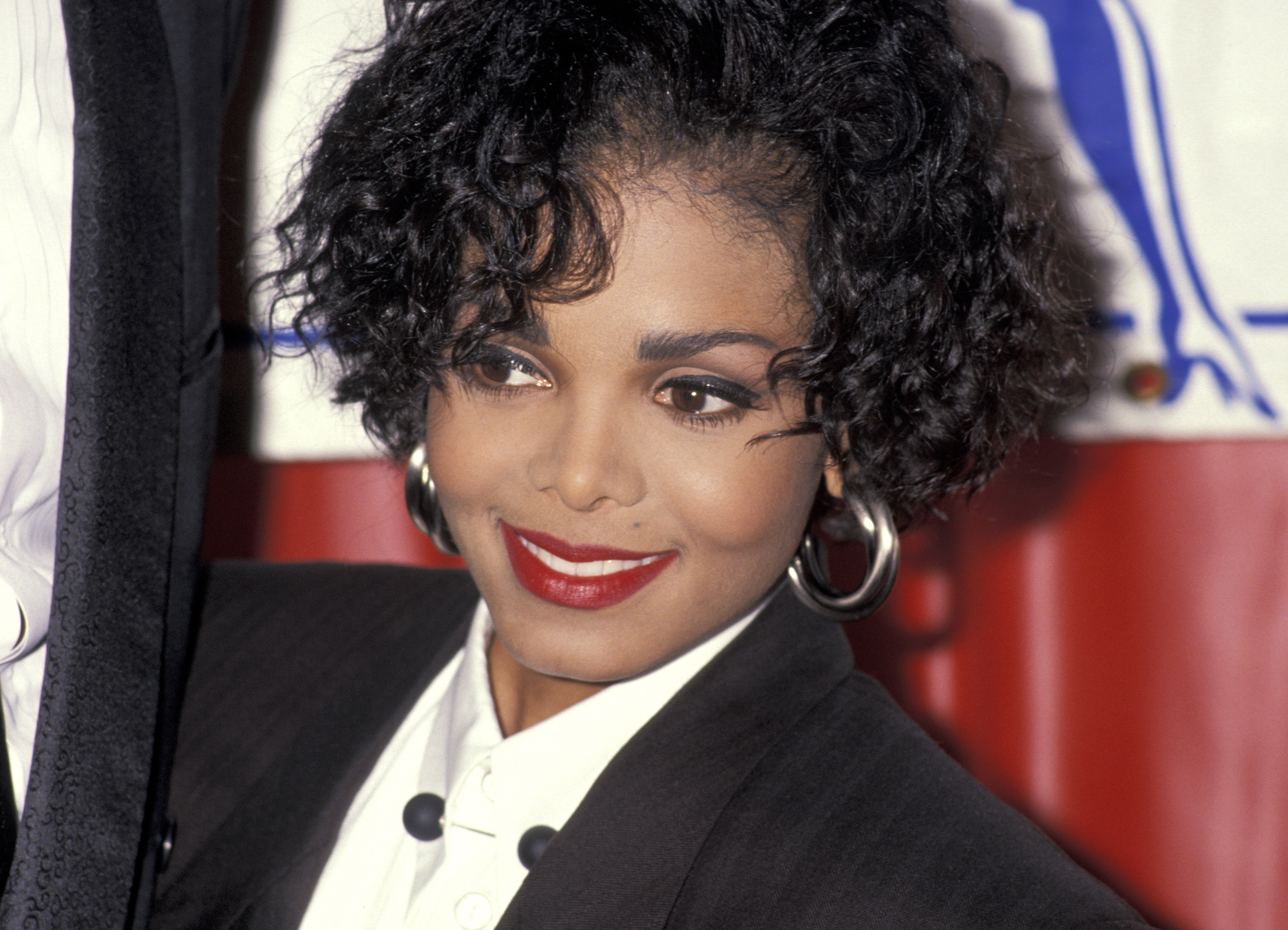 Ron Galella/Ron Galella Collection via Getty Images[/caption]
Ron Galella/Ron Galella Collection via Getty Images[/caption]
Clad in a funky black tuxedo jacket and tight black pants, Janet relentlessly chews on a wad of gum and chooses her words carefully. "To be honest, I didn't know all of that was in me." While Michael did contribute a bit of production aid to her modestly successful 1984 LP Dream Street, he had no input on Control. Janet spent two months in Minneapolis working on it with Jam and Lewis, and Michael didn't hear any of the tracks until the LP was completed. "I wanted this album to be my success, not my family's," she said. "And Jimmy and Terry helped me get it."
Jam and Lewis, former members of the Time, know what works. Onstage, the Time came storming at you in funky pimp suits, arrogant motherfuckers, grabbing their crotches and preening like peacocks with their jeri-curled do's. The Time spit sex at you.
"I saw the Time in concert back when I was 16. It was in Chicago, and they were great. And sooooo nasty. I was sitting out in the audience next to my Mom, and I got so embarrassed that I had to move a few seats away from her."
Before they began working with Janet, the stylishly lewd duo had submitted the tracks of Control to Sharon Bryant, the former lead singer of the R&B pop group Atlantic Starr, who, fortunately for Janet, decided she didn't want that rambunctious a sound on her solo recording. Talk about bad career moves.
"Sharon just wanted a different feeling, I guess, so Jimmy and Terry saved the tracks," says Janet. "What you hear on the album is the result of a lot of jamming that they did right there in the studio. All the music is pretty much them. But the lyrics, the vocal arrangements, the keyboards, and synthesizers, that's where I came in."
[caption id="attachment_id_334233"] 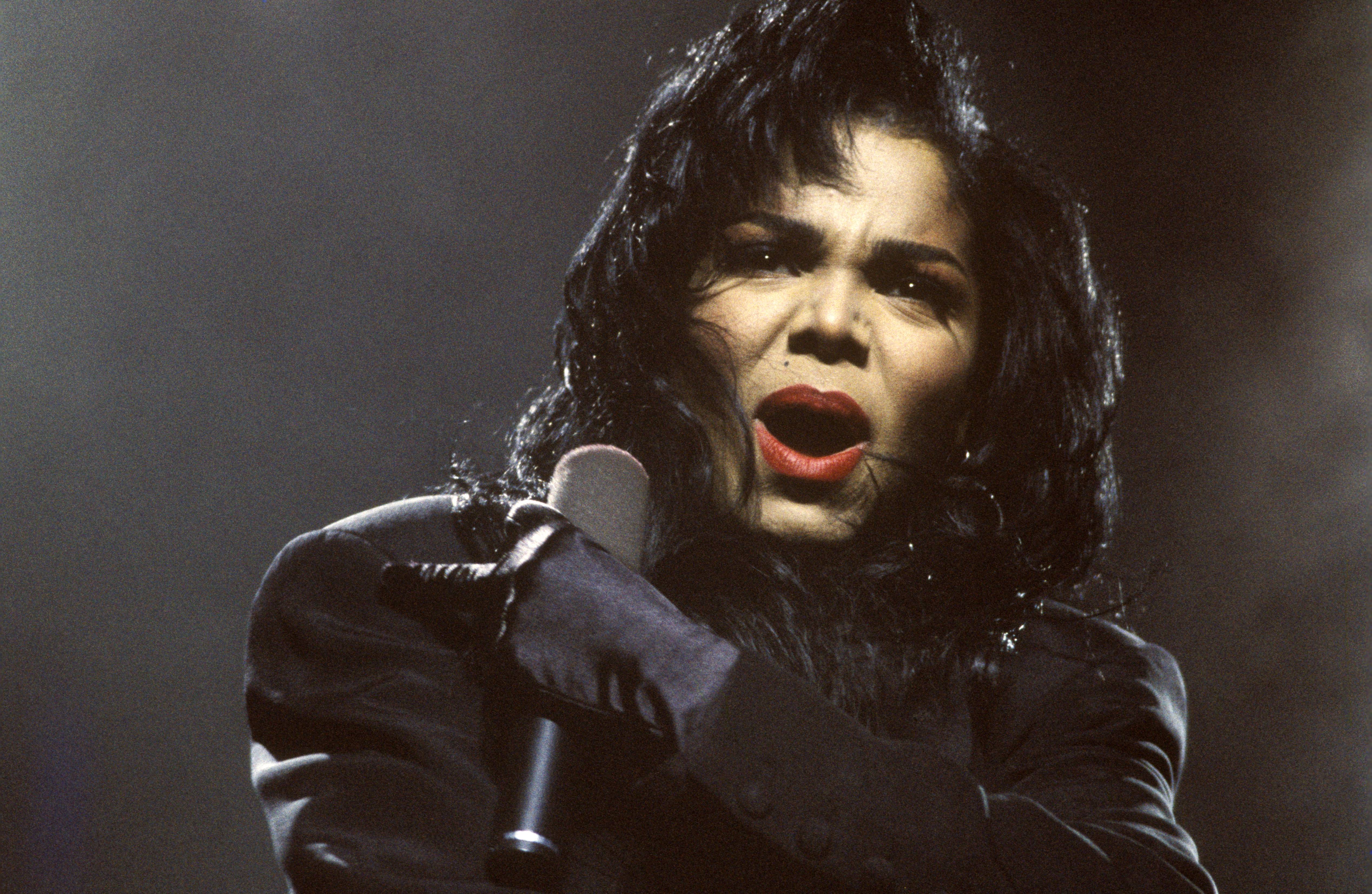 Michel Linssen/Redferns[/caption]
Michel Linssen/Redferns[/caption]
Most of Control's power is in its dance floor authority, from the initial hits, "What Have You Done for Me Lately" and "Nasty," to the more sweetly sublime "When I Think of You" (the single that made Janet and her brother Michael the first siblings to earn solo No. 1 pop hits). Her record company, A&M, fully expects it to reach the 5 or 6 million mark—which would put her squarely in Whitney Houston territory.
While Janet's pride in what she achieved on the album is obvious, her voice contains few enthusiastic inflections, and her direct gaze remains hard to read. It's no accident that Control is the name of her album, since that's how Janet seems to want to appear: worldly, tightly in control, capable of resisting all manipulation.
"A lot of people look at my smile and think of me as innocent and shy," admits Janet. "Now, people are finally starting to look at me as an adult." Janet cracks her knuckles. With her foot resting casually on the footrest of my chair, she has a smug little "ask me anything, I dare you" smile on her face.
One of the first defiantly adult things Janet ever did was to wed dreamy-eyed, ponytailed James DeBarge, a member of the singing group DeBarge. Her brother Jermaine had discovered Debarge back when the Grand Rapids, Michigan, quintet was recording for a small gospel label and brought them to Motown.
For a while DeBarge seemed destined to become the label's answer to the departed Jackson Five. While they didn't live up to that promise, DeBarge did build a sold reputation on the strength of its creamy, falsetto-based R&B sound.
"I met James when I was 10 and he was 13," Janet says softly. "We'd talk on the phone all the time. He had this sweet, affectionate personality and we became best friends. Later we became more than friends." Janet languidly chews her gum as she explains, "I always had more male friends than female friends. I just get along better with guys. But when James and I started going together, I gave up all my male friends."
"James had, which everyone does, certain problems. That's what made me grow closer to him. I wanted to help him." The young couple got married at a ceremony that none of her family attended. "I came home the next day to tell my parents what I'd done. Before I could even get to the door or put my bags down, my father met me with the news."
[caption id="attachment_id_334235"] 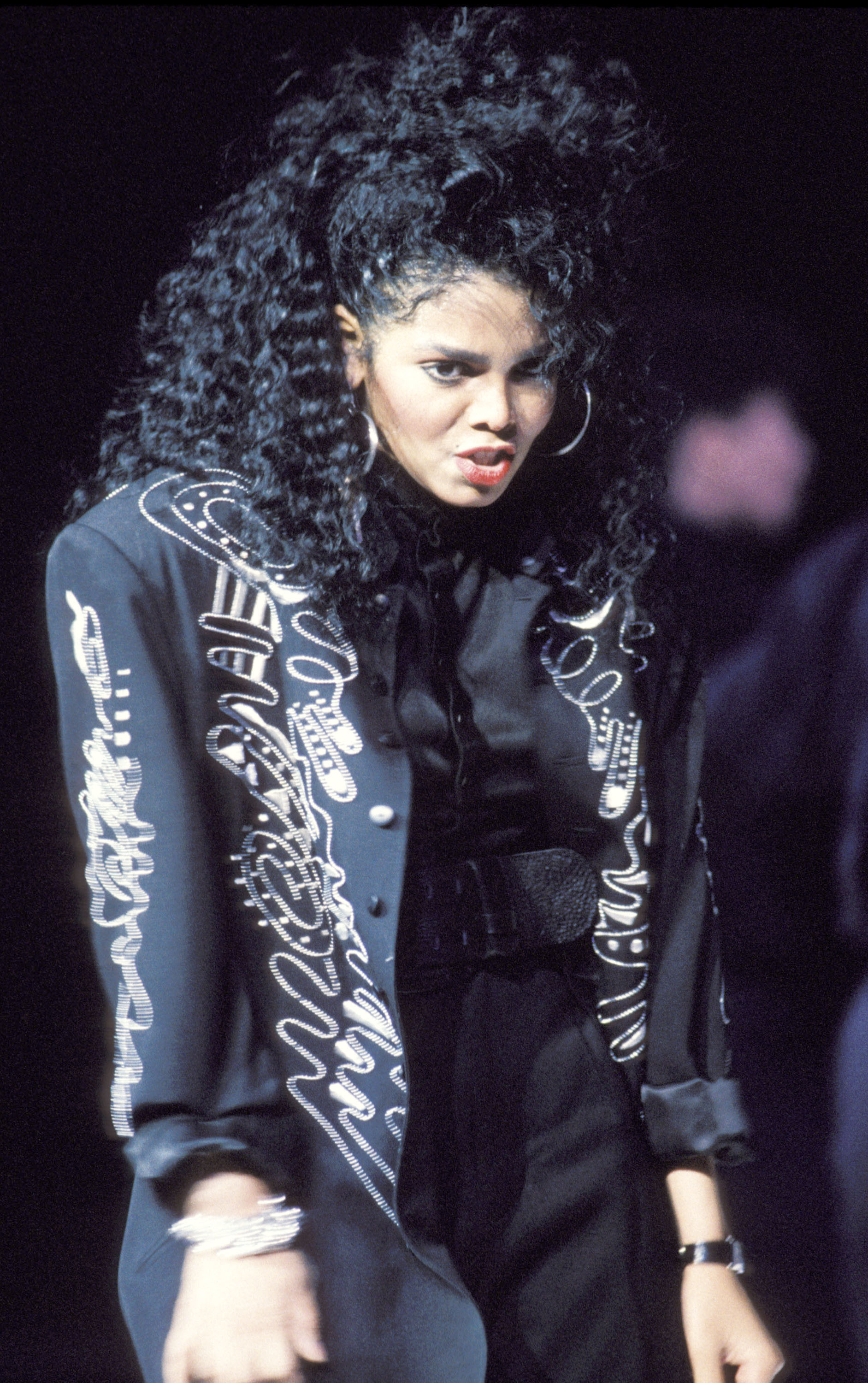 Kevin Mazur/WireImage[/caption]
Kevin Mazur/WireImage[/caption]
Seven months later, she announced that she had decided to have the marriage annulled. A cast member of the TV show Fame at the time of her wedding, Janet blames an intense work schedule for her decision to end the marriage.
"When I'd finally get home at night, I'd be so tired. James would want to work with me on song ideas—we used to write together—and I just wouldn't feel like it." Janet realizes that most people would consider it a bit unseemly ("selfish, really," she admits) to divorce someone simply because you didn't have enough time to spend with them. "But I was never with James the way I wanted to be with him. And I just wasn't happy living that way." Her plaintive tone of voice is the first break in the armor of cool she's worn all afternoon.
James reportedly has said he's "confused about the whole situation," and may not think she gave their marriage enough of a chance.
"He might not think so, but I know I did. And it really hurt to get the annulment. I was in shock when I did it. I cried, he cried. But we've tried to stay friends. We go to the movies, and that feels weird: sitting there next to somebody you used to be married to." She mentions they're both dating other people, and to her that's a healthy sign.
"He'll get over it," Janet says, picking at one of her short fingernails. "I mean, he must be getting over it if he's dating."
Little seems to concern Janet as much as how people regard her decision to divorce James DeBarge. While not defensive, she does project an intense need to set the record straight about her feelings towards him. And while she doesn't mention it, it does look like the person Janet became when she emerged from her marriage is the sexy, self-assured Janet Jackson the world sees today. Though they have long since ceased being a couple, rumors and innuendos about their relationship persist. Not just among her fans and the media, but among her show business peers as well.
"I ran into Vanity recently, and she said: 'Hey, I heard you had James's baby.' I told her that was old news. Then there are the stories that I was pregnant when we got married but had an abortion. A few months ago this guy stopped me on the street to say he heard I'd really had my baby over in Europe and was paying somebody to raise it for me." A mild expression of disgust passes over her face. "Gawd, so stupid. Someday I ought to write a book about the whole thing…"
https://youtu.be/TSQzey7vz7M
Like her brother, Janet is plagued by rumors. And while others may not understand his penchant for plastic surgery and snoozing in a hyperbaric chamber, Janet, at least, has the inside scoop on what motivates him.
"Michael says that out of any two people in our family, we're the ones who think the most alike. I probably understand him better than anyone else does. Certain things he does, others may wonder why…but I know why. Of course," she says, in cool command once again, "that doesn't mean I'll tell why."
"You can cry and mope about what people say about you. Or you can channel that energy into your art. Really, it just makes you stronger."
* * *
Rebbie Jackson delicately nibbles at just the center of her quiche and takes only one or two ladylike sips of champagne. "I want to keep a clear head," she jokes. "I don't want to say too much."
Rebbie was 13 when Janet was born. Soon after, their mother, Katherine, decided to go to night school to earn her high school diploma. "She had polio when she was young," explains Rebbie. "And she quit school when she was a teenager." By day, Katherine Jackson worked at a Sears department store (back in the Jackson Five's pre-Motown, Indiana days).
"I took care of Janet when she was a baby," Rebbie smiles. "So I think of her as mine. Other people are surprised at what she's accomplished, but I could have predicted it. What with her divorce, this level of success has been a shot in the arm for Janet."
https://youtu.be/9zoA0L2u-JQ
Whereas Katherine, Rebbie, and Michael are Jehovah's Witnesses, Janet is not, although she says, "I do study once in a while with Rebbie. Sometimes I'll pick up a book of Bible stories. To get a point across to someone, I may refer to something I've read. But I'm not a religious person. My mother doesn't try to force me into it. She wants something like that to be my decision."
While Katherine Jackson has had little luck in influencing Jane's theological leanings, she did manage to talk her into moving back home after her divorce. "I wanted to get a smaller place of my own. Maybe a condo," she admits. "But my mother would call me and say: 'If you're lonely, your room will always be here.' Finally, I just said OK, because I could tell she missed having me around."
Without warning, Janet grabs my notepad from my lap to see what I've been writing about her.
"Gawd, what is this…shorthand? And you can write on each line. I'd have to skip lines to write like this."
"That's because you don't do it for a living," I say, a tad huffily, and Janet giggles.
"Mmmmm, I'm starting to get tired," Janet sighs. She smiles, her expression sly. "You know, I can't sleep alone. At night I have to sleep with somebody or something…"
"Yeah, I know, I've read that about you."
"This is what I sleep with." Her toe gently nudges Fluffy, the napping pooch on the floor between us that she had rescued from Balboa Park in Encino. "Some people just dumped her out the back of a van and drove off." As for companions of the two-legged variety, Janet is much more selective. "I don't have many friends. I've been hurt a lot in the past. People use me to get close to my brothers and sisters, and that hurts like crazy."
[caption id="attachment_id_334241"] 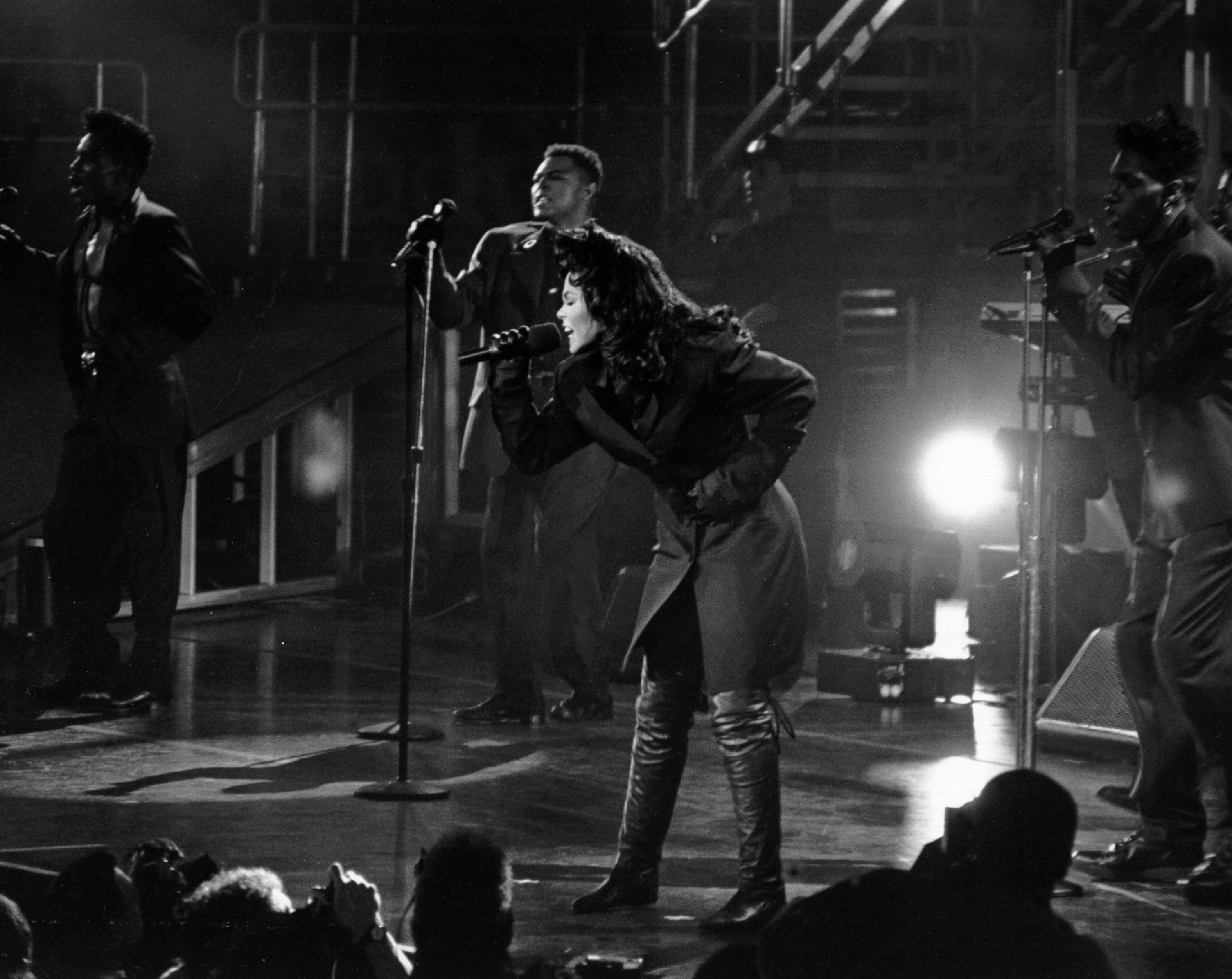 Al Pereira/Michael Ochs Archives/Getty Images[/caption]
Al Pereira/Michael Ochs Archives/Getty Images[/caption]
What Janet wants now and is determined to get is control of her own life. There is a special person in her life ("His name is Rene") and she calls him very supportive. "When I got the annulment from James, Rene was one of the first people I called. I told him, 'I don't believe what I've just done.' But really, having a boyfriend and a career would be too hard right now. I have to watch myself and make sure I don't get too wrapped up." She gives a little laugh. "That would be serious trouble."
That wistful little ballad from Control called "Let's Wait Awhile" perhaps summarizes Janet's attitude about relationships these days. "Being married feels different from just living with someone. James and I both wanted our careers, so the marriage would've ended sooner or later. But look what came out of it. I hear he's back in the studio, working on some new stuff. And I have my album, which did well for me."
Janet seems amazingly unfrazzled by all the forces competing to control her actions and her destiny. Others may be bent on making her The Next Big Thing in the industry, but Janet, at least today, looks blissfully undriven.
"James used to call me lazy," she laughs. "I think he was right."
She smiles, gives a small sigh, and I feel like telling her that maintaining control over one's own life is no small feat; it is, in fact, one of the toughest things that a person, let alone a long-buffered and protected 20-year-old, can do.



